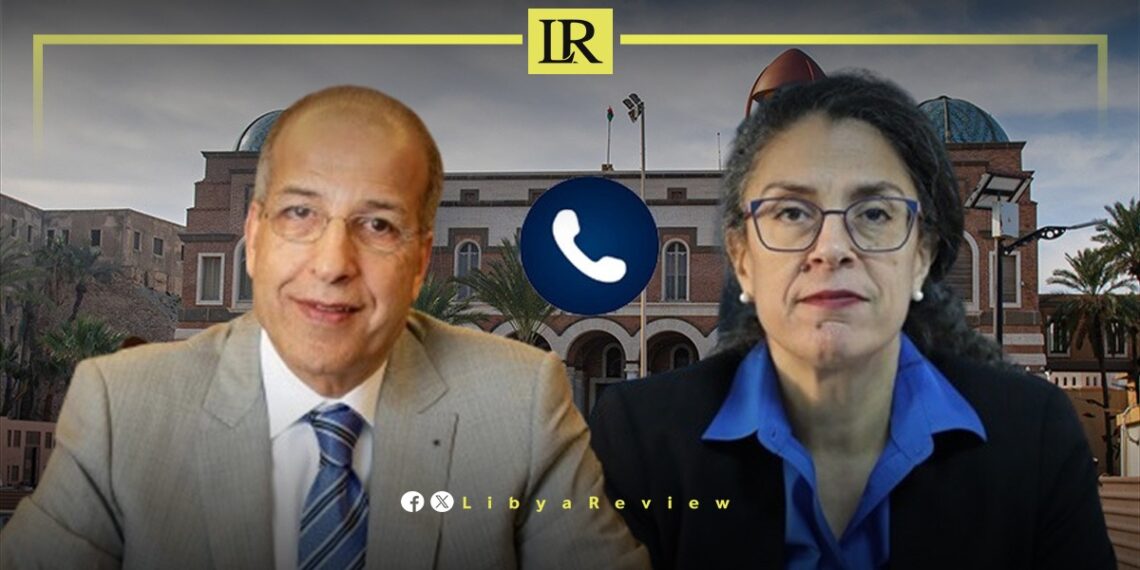Acting UN Envoy Stephanie Khoury has warned that unilateral actions could have serious repercussions and negative consequences on Libya’s position in the international financial system.
In a call with Al Siddik Al Kabir, Governor of the Central Bank of Libya (CBL), Khoury emphasized the need to take steps to restore confidence in the Central Bank of Libya and to implement the recommendations of the review, including the appointment of a board of directors.
Khoury affirmed her support for efforts to reach a peaceful solution that ensures a mutually agreed mechanism for budget transparency and accountability in the distribution of state funds.
According to the Central Bank of Libya, Khoury expressed the UN’s full support for the bank and stressed the importance of enabling it to continue performing its duties.
The Central Bank also stated that Khoury welcomed the support of the House of Representatives and the High Council of State (HCS) for the Central Bank, and she considered the “unilateral actions” taken by the Presidential Council as beyond its jurisdiction, according to the statement from the Central Bank.
On Monday, Libya’s Central Bank Governor, Al-Siddiq Al-Kabir, held a phone conversation with Martin Longden, the United Kingdom’s Ambassador to Libya, to discuss escalating threats to the security and stability of the Central Bank of Libya (CBL). The conversation addressed the increasing risks facing the bank’s staff, systems, and overall operations.
During their discussion, both Al-Kabir and Longden emphasized the importance of maintaining the Central Bank’s independence and stability.
They agreed on the critical need for the CBL to continue its essential role in ensuring Libya’s financial sustainability. Ambassador Longden expressed the United Kingdom’s unwavering support for the CBL, acknowledging its pivotal role over the years in preserving the nation’s financial and economic stability.
The Central Bank of Libya is a key institution in the nation’s financial system, tasked with managing the country’s finances, particularly its vast oil revenues, which are vital to the economy. However, the bank has been increasingly caught in the crossfire of Libya’s ongoing political turmoil and security challenges. Its independence is crucial to maintaining financial stability in a country beset by division and conflict.
Governor Al-Siddiq Al-Kabir has been at the helm of the CBL during some of Libya’s most challenging years, navigating the bank through a landscape marked by political fragmentation, economic crisis, and the threat of violence. His leadership has been central to maintaining the bank’s operations under immense pressure, though it has also made him a target in the broader struggle for control over Libya’s financial resources.


